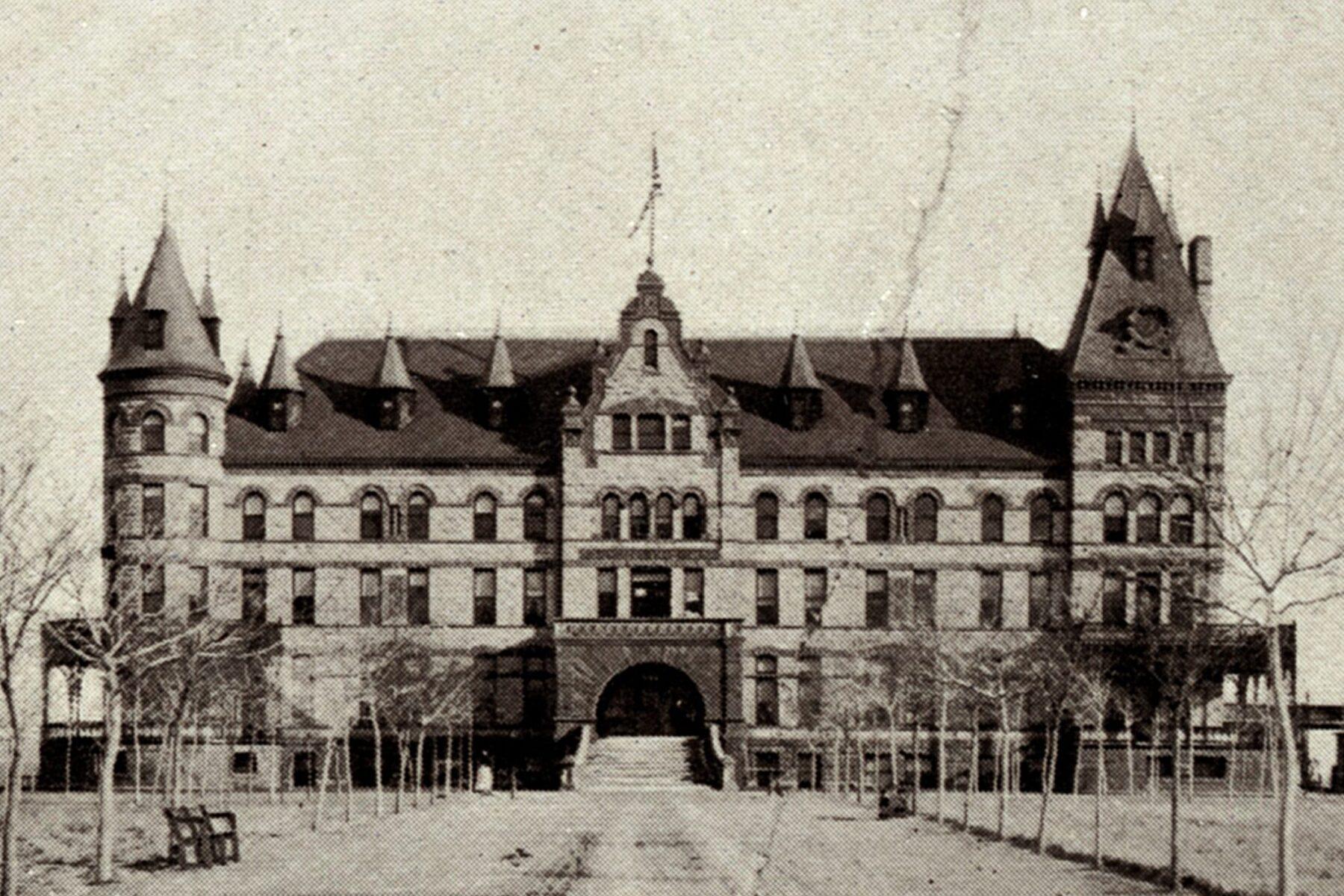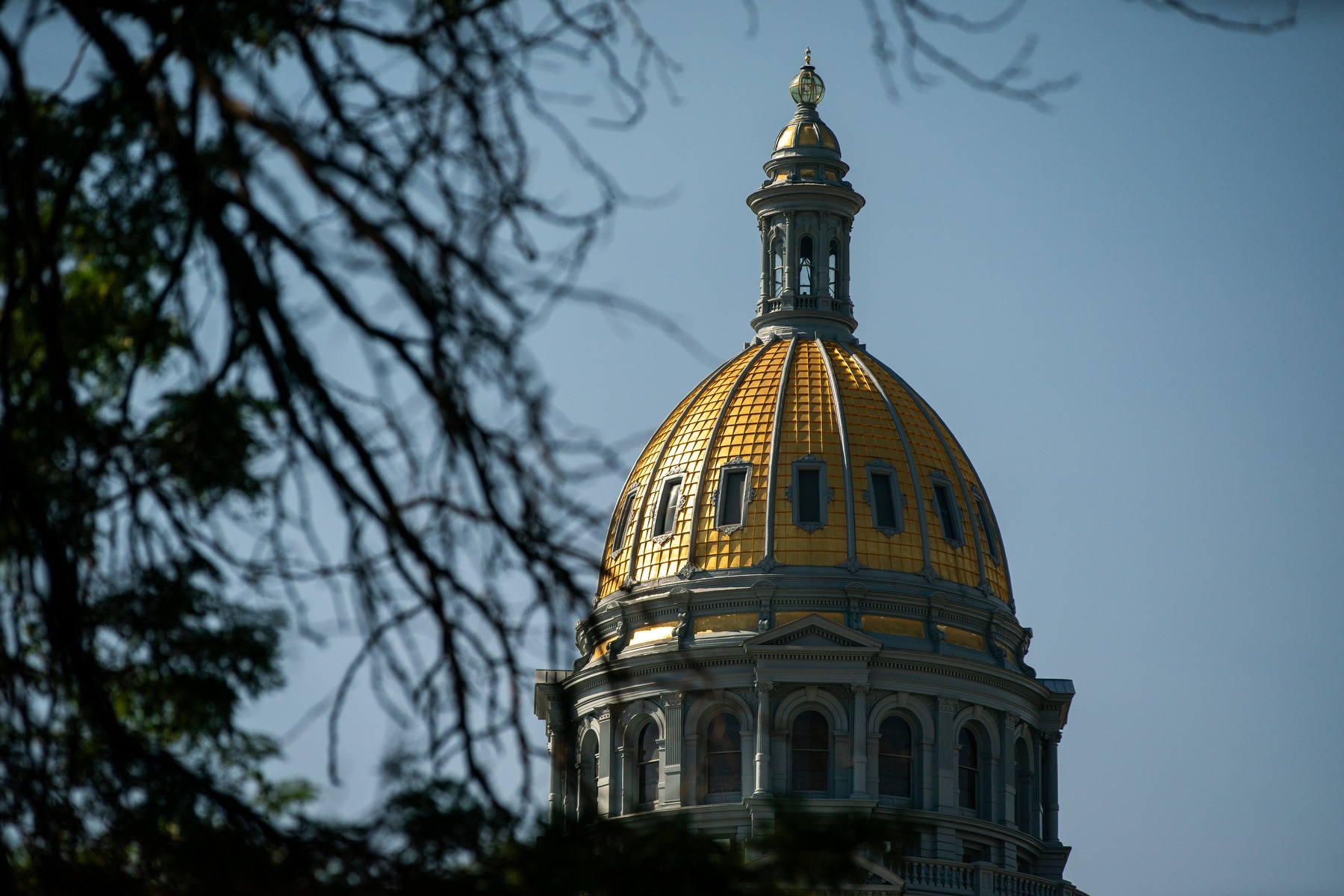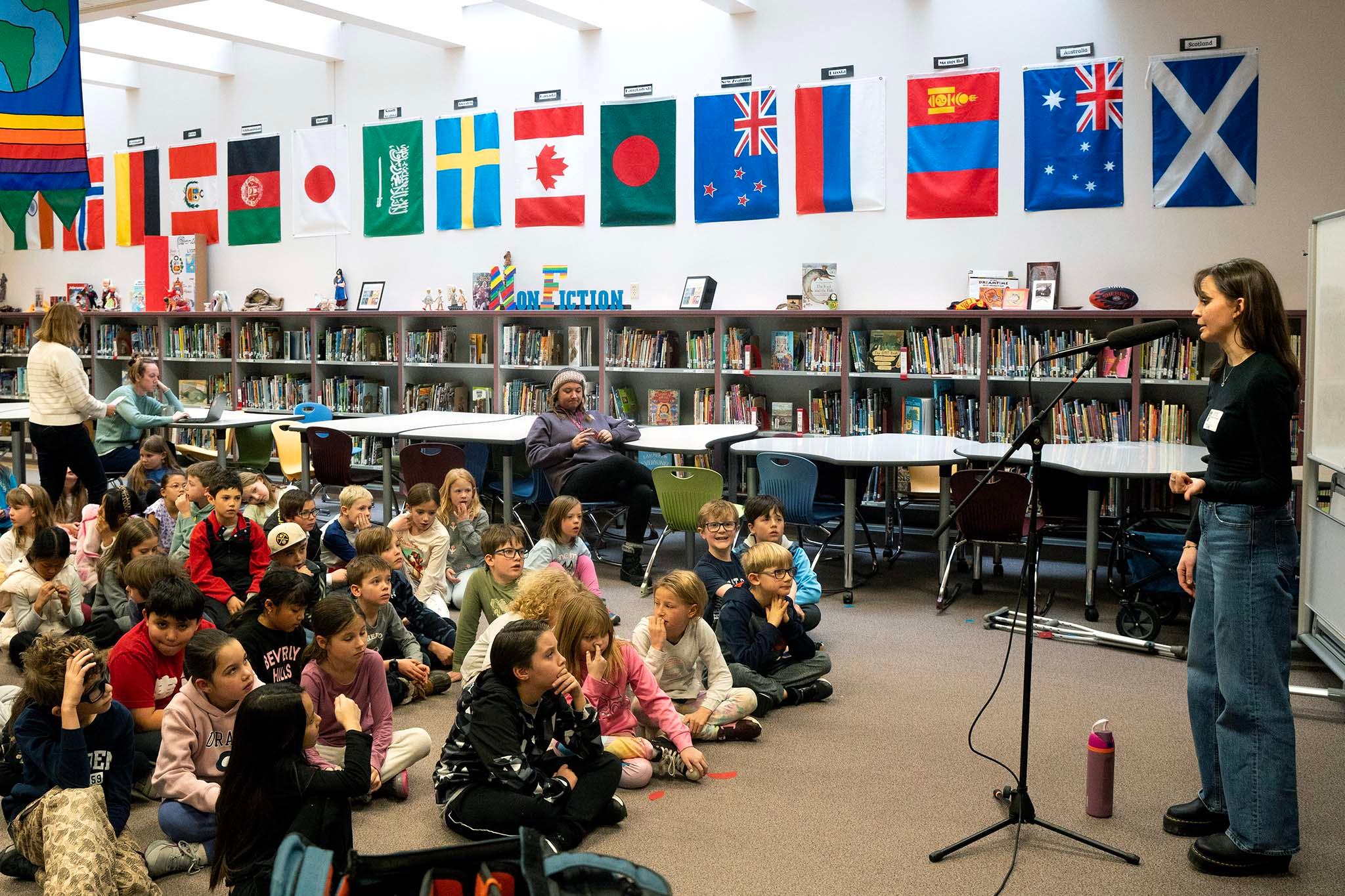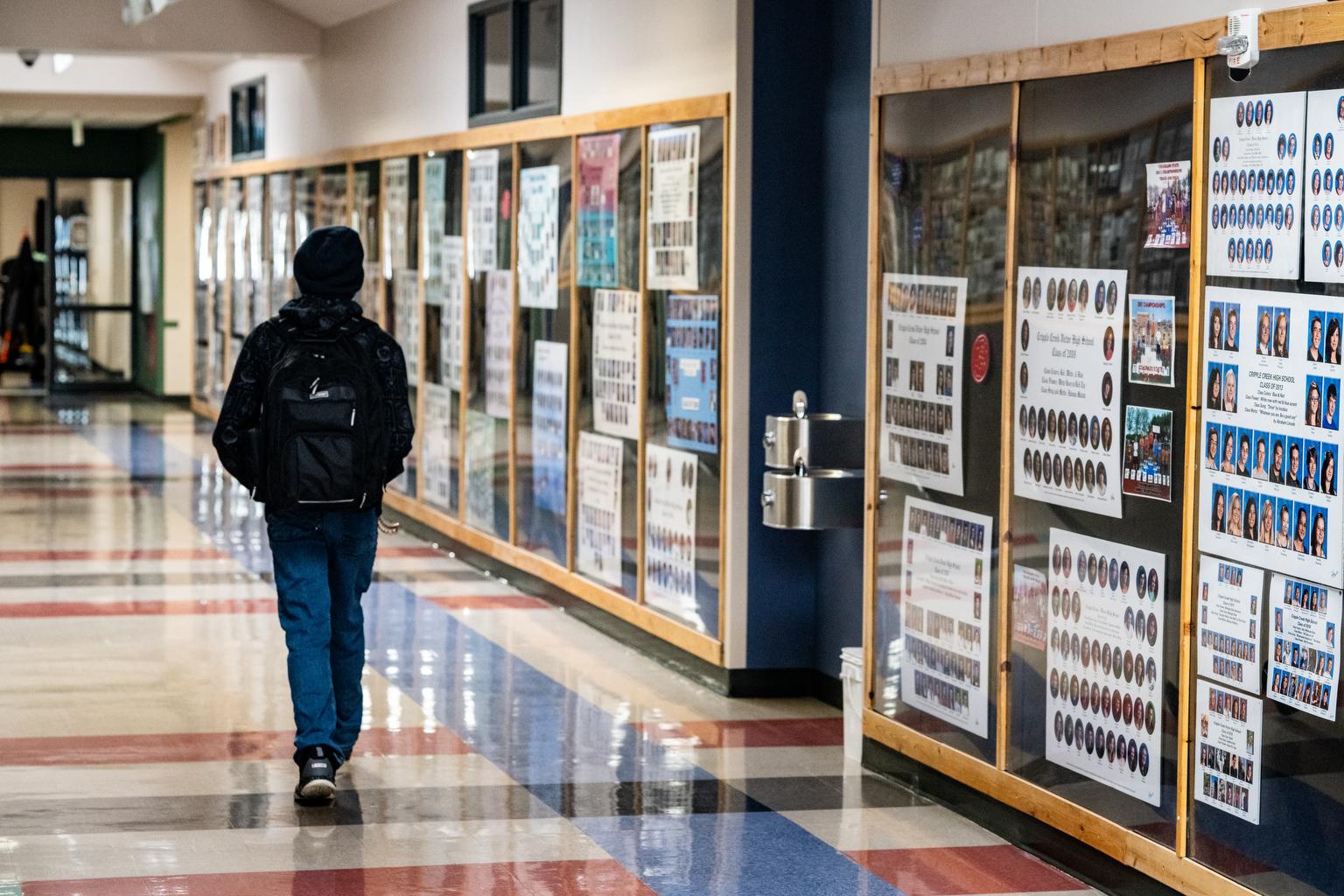
When 15-year-old Max Kurtz won an award at his school district’s science fair, he never thought it would be impacted by the Trump administration’s cuts to a federal agency.
But that’s exactly what happened.
Back in February, the Fairview High School sophomore presented a project at Boulder Valley School District’s annual science fair. His project measured microbial activity in soil, which could help farmers get the most yield from their crops.
It was part of some broader lab work he’d been doing while working with a mentor and lab group at the University of Colorado Boulder.
“(Farmers would) be able to sort of just stick this little thing in the ground,” Kurtz explained. “And if the reason that all our crops are dying, or the reason why they're having shortages, is due to a deficiency in microbial activity, they'd be able to then take steps to sort of solve that.”
Kurtz didn’t advance to the next round of competition, but his project did win an award sponsored by the United States Agency for International Development, or USAID.
The USAID award was given out to projects that hold “the potential to improve lives around the world,” according to an online list of awards.
It also came with a prize: a conversation with a USAID employee to talk about his project and pursuing a career in a science and engineering field with a humanitarian focus. That was a big deal for Kurtz.
“I think my interest in engineering very much aligned with (USAID’s) mission … just like helping developing countries, that's also a big part of what inspired me to want to work with this lab for my project,” he said.
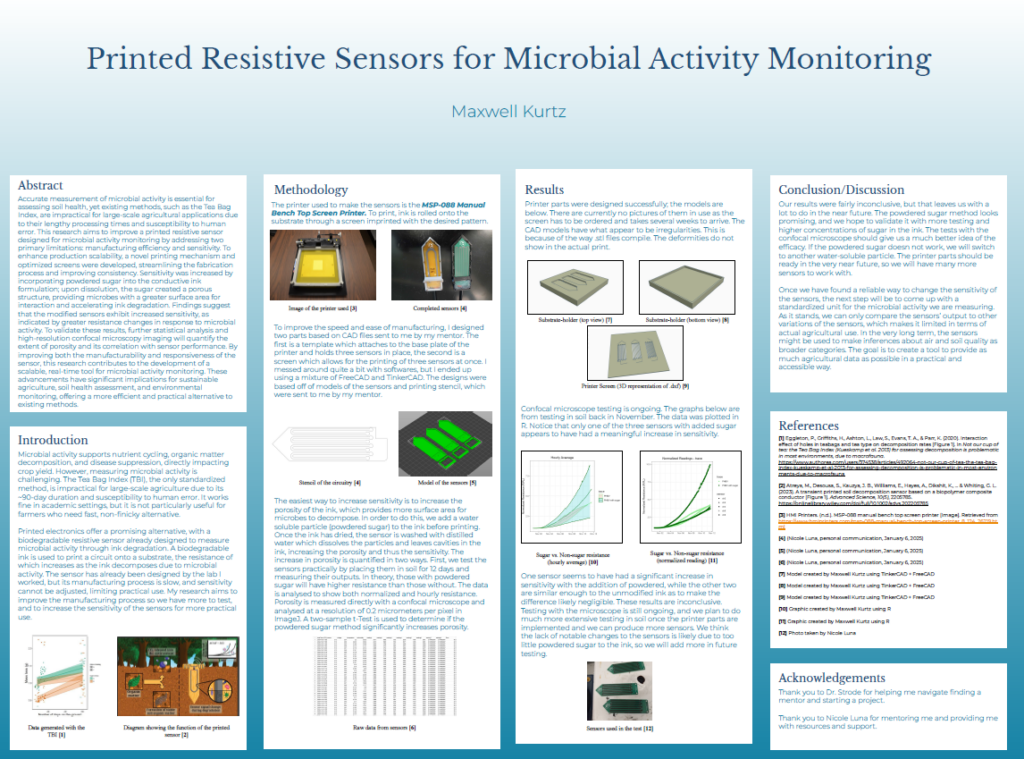
But in the first weeks of the Trump administration, officials sought to dismantle the agency and halt its distribution of billions of dollars in aid and nonprofit grants. That effort was largely successful, although a federal judge ruled in March that the USAID cuts were likely unconstitutional.
Kurtz’s award was caught up in the cuts. Days after winning, he was forwarded an email from the organization that coordinates regional science fairs across the country, the Society for Science. USAID had given that nonprofit a stop-work order, and the group had discontinued all their awards sponsored by the federal agency.
The Society for Science pulled Kurtz’s award from its website and the conversation Kurtz was promised was canceled.
Hunter Hart is the Society for Science’s International Science and Engineering Fair program manager. He wrote the email notifying Kurtz and hundreds of fair organizers about pulling the award.
“I think us and a lot of other organizations kind of received this (stop work order) when the news went public that USAID was essentially going to be dissolved. (It) basically just said, ‘Any of the contracts that we've signed with you, you should not work on,’” Hart said.
The International Science and Engineering Fair has affiliates in all fifty states and 70 other countries and territories. In order to get to the big international fair, students have to compete at regional ones. Outside groups like USAID can sponsor special awards at both kinds of fairs, but at the international competition, the stakes get much higher. There, judges will award almost $9 million in prize money.

USAID had sponsored two different awards at these competitions for over a decade. The regional awards that Kurtz won — with the virtual conversation — and separate awards presented at the international competition with a cash prize. Starting in 2014, the federal agency gave the fair about $300,000 in prize money in total. That’s been pulled this year as well.
A spokesperson for the State Department told CPR News the contract did “not fit within the standards laid out by Secretary Rubio for U.S. foreign assistance, which must make the United States stronger, safer, or more prosperous.”
Hart estimates about a third of ISEF’s affiliated regional fairs in the United States took place before he received the stop work order. That includes almost all of Colorado’s. At least one other student in the state besides Kurtz was also given the USAID regional award before it was withdrawn.
“Obviously, I'm not happy about it being taken,” Kurtz said. “I'm not really upset for myself, really. I'll have other opportunities like this … but I think that what's really upsetting to me is how far-reaching funding cuts like this are. Because I feel like it's really easy to see stuff like this on the news and see that funding is being cut, or that programs are going away, and not really understand the real, tangible impact that it has on people.”
Losing out on the benefits of his award hasn’t pushed Kurtz away from science and engineering, however. He’s already planning to participate in BVSD’s regional fair next year and he’s working up a new printer part to make the soil sensor he helped build even better.
Funding for public media is at stake. Stand up and support what you value today.

